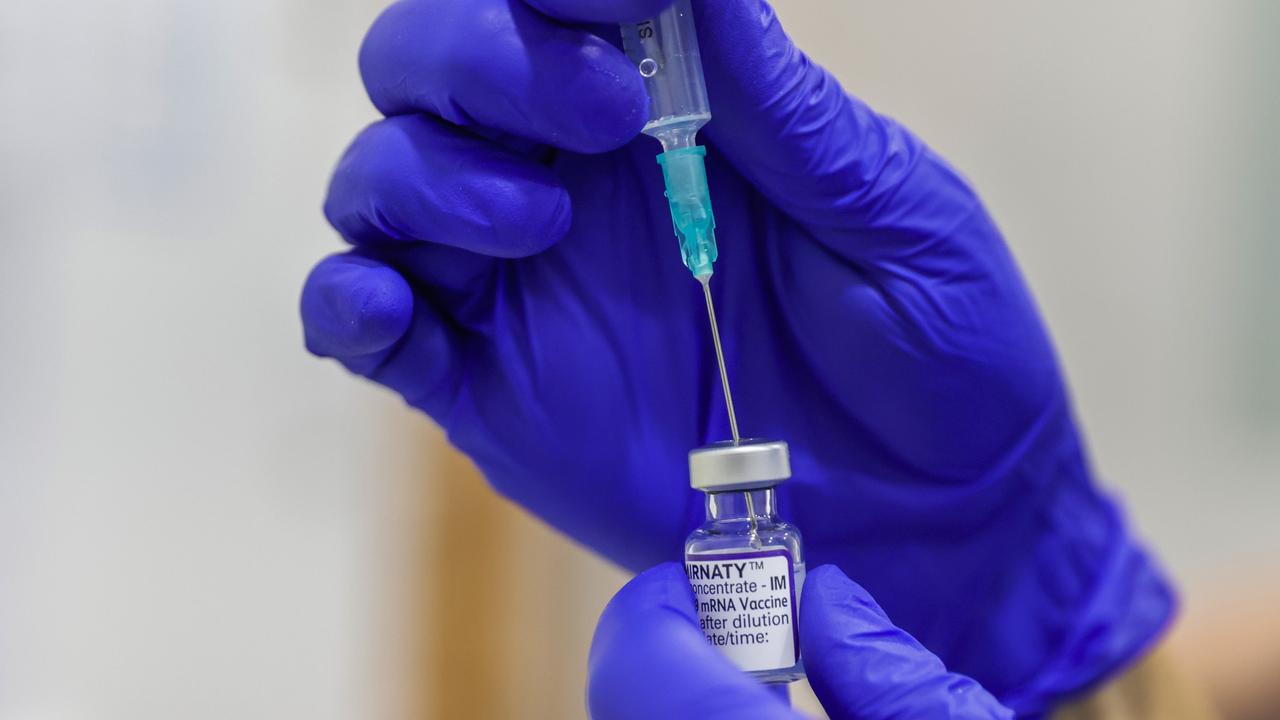AstraZeneca vaccine for second dose but advice could change again
The changes in medical advice for the AstraZeneca vaccine has left the over 50s confused but it’s recommended they take the second dose — but advice may change again.
NSW Coronavirus News
Don't miss out on the headlines from NSW Coronavirus News. Followed categories will be added to My News.
Health experts are advising those in the 50-plus age group who have had one dose of AstraZeneca without a reaction to stick to their second AstraZeneca dose, with a new Medicare item announced to help GPs deal with the fall in vaccine confidence.
Some over 50s who have already had one shot of AstraZeneca are also asking if they can have the Pfizer instead as fears of the rare clotting complication Thrombosis with Thrombocytopenia Syndrome grow.
Of the latest 12 cases of blood clots associated with AstraZeneca, seven of them are in their 50s and five are aged 60 plus.
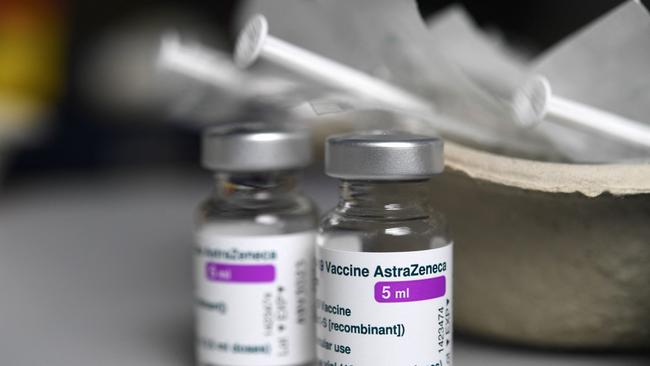
Professor Michael Toole, Epidemiologist and Technical Adviser Know-C19 Hub at the Burnett Institute said the risk of TTS with the first shot was three per 100,000.
“That is a lot higher than previously estimated, it’s still low, but one in 30,000 is a bit worrying in an environment where we don’t have many Covid cases,” Prof Toole said.
“I’ve had my fist dose and get my second next week and I’m perfectly confident to do so because the risk of an adverse clotting event for the second dose is extremely low, about one in a million.”
The latest advice came on Thursday after seven of the latest 12 blood clots were in people in the 50-59 age group.
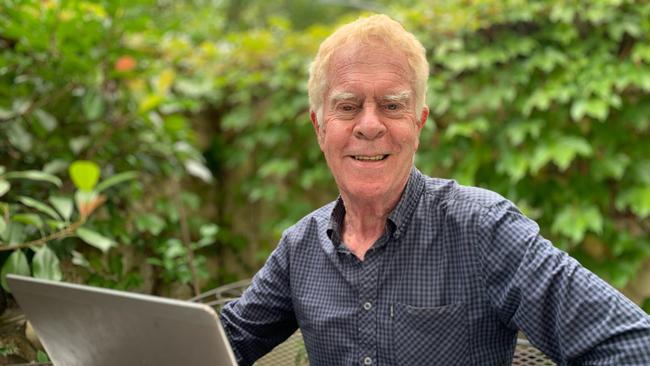
The changing medical advice proves the system of surveillance is working according to Associate Professor Margie Danchin, Group Leader, Vaccine acceptance, Uptake and Policy, at Murdoch Children’s Research Institute.
“We need to reassure people that the Australian Technical Advisory Group on Immunisation (ATAGI) and the Therapeutics Goods Administration (TGA) are always constantly re-evaluating the safety data of the AstraZeneca vaccine by age group and the advice they have made now is appropriate and welcome given the increase risk in people under the age of 60,” she said.
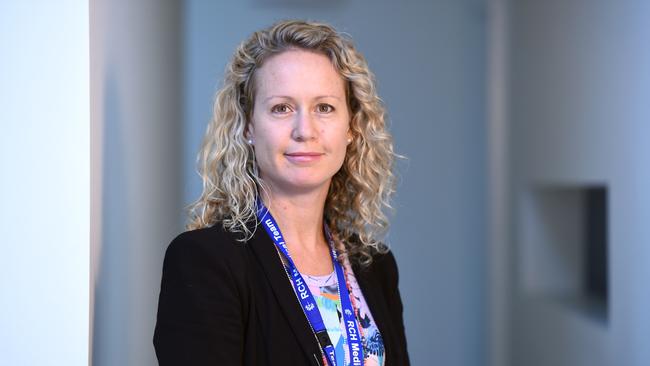
The most recent data on vaccine hesitancy found 30 per cent were not likely to be vaccinated, but experts predict a hit to confidence post the ATAGI decision.
Federal Health Minister Greg Hunt announced Friday a new Medicare item of $38.75 bulk billed for GPs to allow consultation with those over 50.
The Royal Australian College of General Practitioners President Dr Karen Price said the new MBS item could not come soon enough.
“We are dealing with increasing vaccine hesitancy right across the country. I’m seeing it in my own practice in Melbourne, almost all my patients have questions about the COVID-19 vaccines,” she said.
The age cut off for AstraZeneca is balanced on risk of being admitted to intensive care with the virus compared to the small risk of the clotting complication which is now at three per 100,000.
For over-60s, 14 per cent of those who contract Covid, might die.
Those who have had the first shot are asking if they can now opt for Pfizer for the second shot.
There are about 3.2m people in the 50-59 age group according to government figures and one third, or 1.01m have had one jab. 2.103m now eligible for the Pfizer vaccine the Department of Health said.
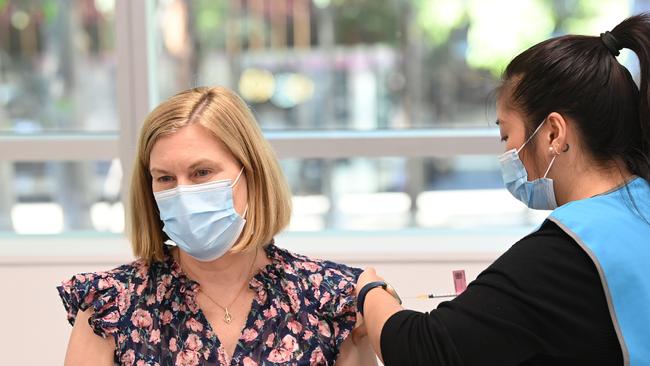
“There is s small study from Madrid of 600 people who’d had their first dose of AstraZeneca and randomised them to receive either the Pfizer dose after three weeks or the second AstraZeneca shot at 12 week and they found the immune response the Pfizer (as second shot) was better than two doses of AstraZeneca,” Prof Toole said.
Professor Terry Nolan, head of the Vaccine and Immunisation Research Group at the Doherty Institute said the “mix and match” regimen of the two different vaccines was already in place in six countries.
“There is pretty good evidence when you do mix the AstraZeneca and the Pfizer combination you get very good antibody responses, as good or better if you had two of the same vaccines, either of them.
“We are expecting to find it will be better to have that mixed platform. Sweden, France, Canada, Finland, Norway have already moved to give a second dose of an mRNA vaccine because they have been concerned about the TTS clotting issue. The difference between them and us is they have plenty of (Pfizer) vaccines, we don’t,” Prof Nolan said.
“We just don’t have enough Pfizer and now we have the 50-59 year olds competing with the 40-49 year olds to get Pfizer,” Prof Toole said.
According to Federal health Minister Greg Hunt, Australia will receive only 2.8 million doses of Pfizer in July.
National cabinet will convene on Monday to discuss the nation’s Covid-19 rollout.


